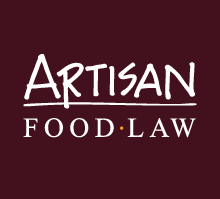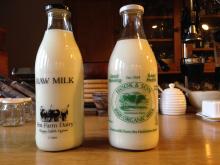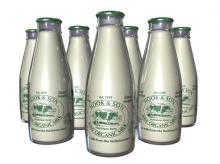The FSA’s apparent change of heart on raw drinking milk over the summer earlier this year seemed like a breeze of fresh air, a more rational and reasonable approach to the management of food safety risks looked to be in the making. It now seems that a return to historical paranoia is the order of the day.
On 5 November 2014, this coming Wednesday, the Board of the FSA meets and will discuss ‘Our Approach to ‘Risky’ Foods’, a report prepared by Steve Wearne, the FSA’s Director of Policy.












